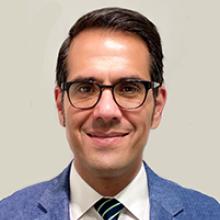Heinrich Hock
Heinrich Hock is a principal economist in the Workforce program area at AIR who has spent the last 16 years developing to inform policy through applied research on education, career readiness, job training, work engagement, and social insurance. An evaluation design expert, Dr. Hock has planned and executed experimental, quasi-experimental, and descriptive evaluations. He has directed teams of quantitative analysts, guided qualitative research, and led efforts to produce and synthesize evidence-based results for federal agencies and nonprofit funders.
Dr. Hock currently focuses on identifying effective solutions for improving employment and learning outcomes among underserved groups. He is designing a randomized controlled trial (RCT) for the U.S. Department of Education (ED) to identify and test supports that can help youth with disabilities achieve better post-school outcomes. He also leads an RCT evaluation for an ED grant to develop and pilot-test a technology tool that seeks to improve the real-world relevance of instruction that seeks to help adults address gaps in their foundational skills. In addition, he contributes to an AIR initiative to promote effective and equitable investments in workforce development, as well as projects for the U.S. Department of Labor (DOL).
Dr. Hock’s past work includes leading quantitative work on RCTs to evaluate entrepreneurship training for dislocated workers, new workforce strategies for jobseekers with disabilities, and enrollment in an intensive DOL training program among youth with disabilities. He also led descriptive studies of Unemployment Insurance (UI) recipients’ outcomes, designed a quasi-experimental evaluation of a process-improvement intervention in the UI system, and played key roles in studies of low-income women and veterans participating in DOL workforce programs. In addition, he led research tasks for the Social Security Administration to assess how selected policies and rules affect the outcomes of people participating in disability assistance and training programs. Through several of these projects, Dr. Hock has worked directly with staff in program offices to identify learning priorities and develop iterative studies to address those priorities.
Across his research, Dr. Hock has sought to help range of audiences access and build on evidence-based results. He has produced or contributed to project reports, issue briefs, peer-reviewed publications, conference presentations, and webinars. He has also produced public- and restricted-use data files to support replication and development of new findings by other analysts.
Dr. Hock previously worked at Mathematica, where he conducted some of the research described above, and Florida State University, where he used quasi-experimental methods to conduct economic and policy studies of the links between work, family, and education.

